Maíra Habimorad, CEO Inteli, wrote about the paths that girls need to take in the job market and how Inteli is directing its gaze and commitment towards training more girls in the field of technology.
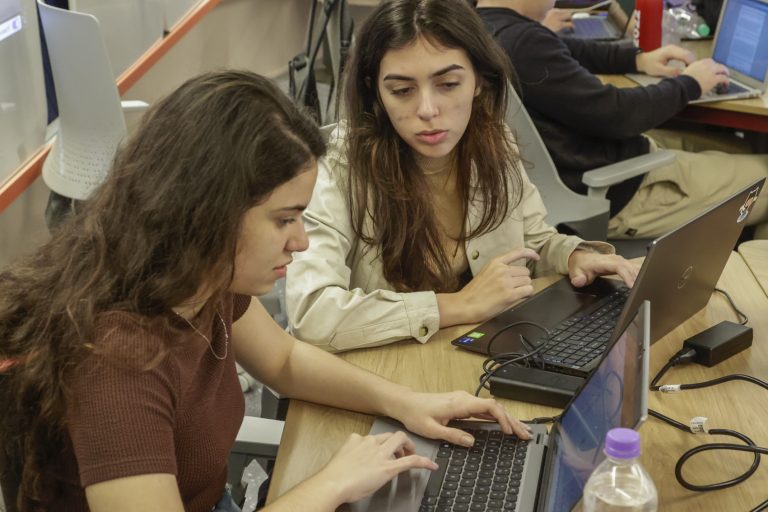
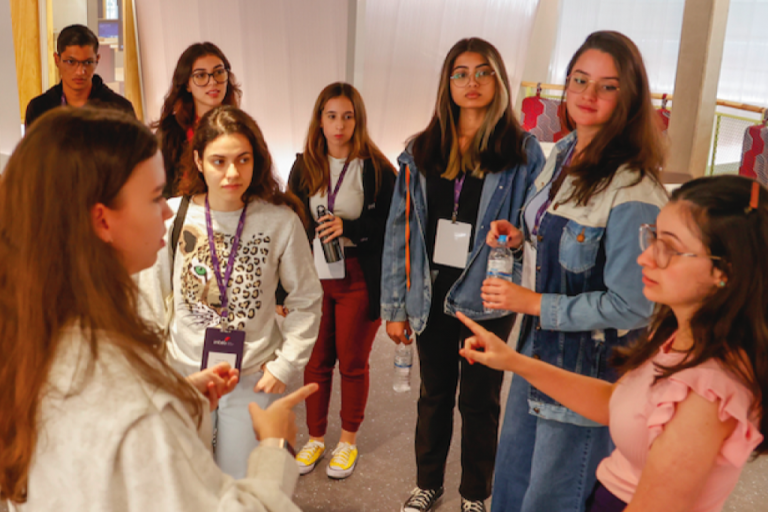

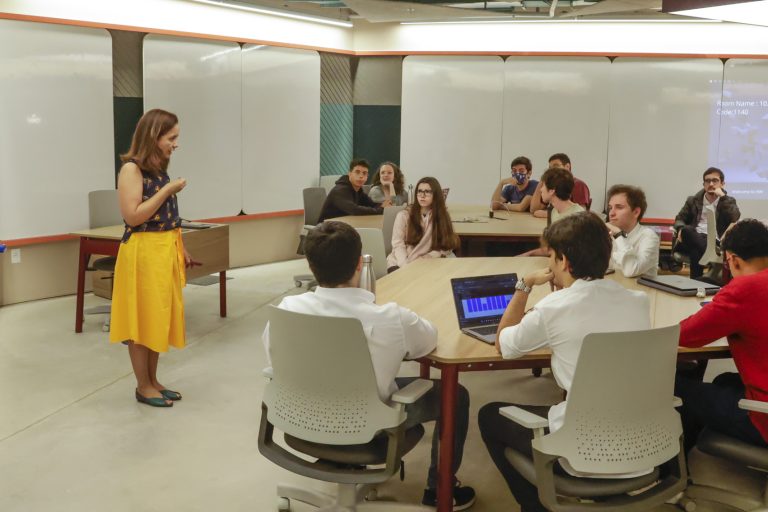
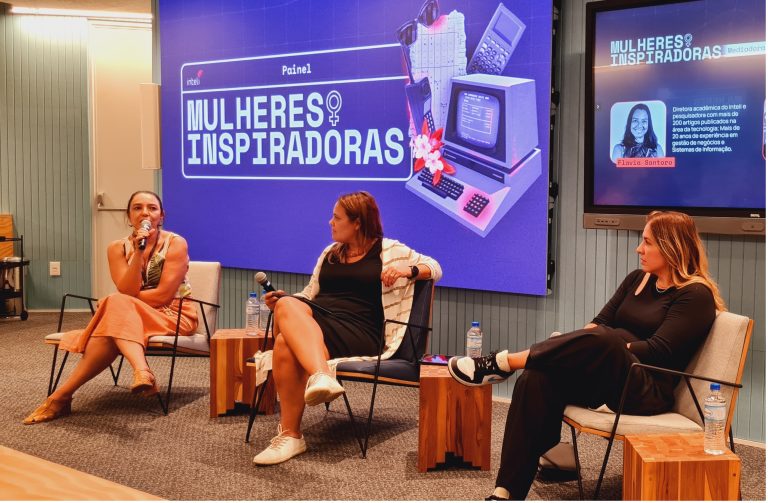

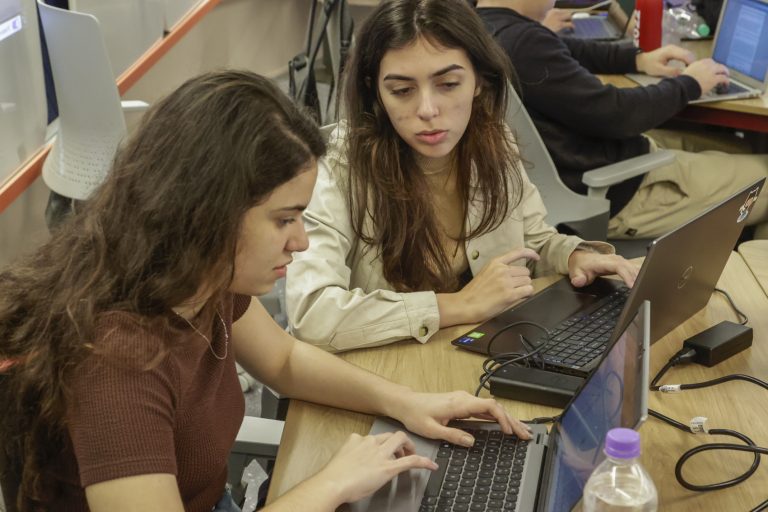
Why does the world of technology still not attract so many girls?
Tara Westover stepped into a classroom for the first time at the age of 17. Isolated on a farm in rural Idaho, she grew up unable to attend school, thanks to her father's fanatical belief that the end of the world was near. The American tells of her inspiring journey - from a late formal education to a doctorate at Cambridge - in the book "The Girl in the Mountains". After the first few years of college, when she questioned whether she should continue her studies or follow the same fate as the women in her family, Tara heard advice from a professor that changed her story: "First find out what you're capable of. Then decide what you're going to do with it".
One of my dreams is that more girls will follow in the footsteps of Tara and other talented women and discover the enormous potential they carry when they can access an emancipating education. As Inteli's CEO, I can say that we've been working since day one to make these talented young women feel that this is the place for them to learn technology and become leaders of the future.
Even after a huge communication effort and specific actions during the entrance exam, girls are still in the minority in the classroom (25% of the total). Why does this matter?
Gender equality is fundamental in technology
The relevance of gender equality in science, technology, engineering and mathematics (STEM) careers goes beyond the labor market debate. As journalist and activist Caroline Criado Perez says in her book Invisible Women: Exposing Data Bias In A World Designed For Men, "if we are designing a world that should work for everyone, we need to include women in the command room". In fact, Caroline's work is fundamental to understanding how the gender gap in the era of big data can make half the world's population completely invisible. Bringing more girls into technology faculties and preparing them for the 21st century job market is an urgent demand.
In a world where artificial intelligence, the metaverse and robots are increasingly becoming part of our daily lives, it is essential that the development of these technologies does not carry gender biases and prejudices. For example, women are 47% more likely than men to suffer serious injuries in car accidents. One of the reasons for this is that safety tests use dummies - the nicknames for the mannequins used in these measurements - which portray a man of average build (175 cm; 75.5 kg). In other words, these studies do not take into account the variations in weight, height and driving position of women, children and the elderly.
It's worth remembering that femtechs have only emerged in the last decade to meet women's biological needs, such as monitoring menstruation and fertility, and solutions for pregnancy, breastfeeding and the menopause. Again, one of the reasons for this delay, considering that women represent half of the global population and have a high purchasing power, is the evolution of science centered on the male body.
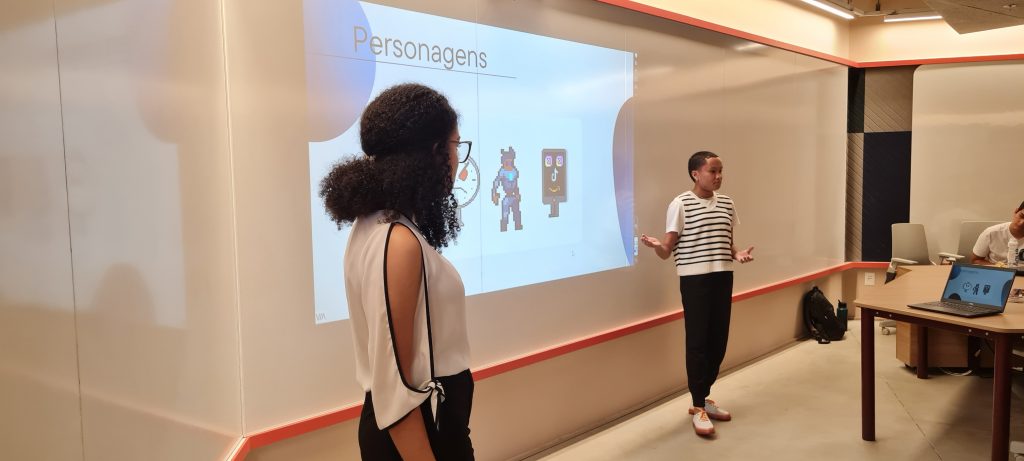
Technology courses are still male-dominated
When we look at the statistics, the difference in performance between girls and boys in PISA 2018 in the Mathematics test was nine points in Brazil, compared to five on average in the OECD countries. In Science, while girls were two points above the global average, the performance of boys and girls was very similar here.
Among the students with the highest math or science scores, around one in three boys in Brazil expects to be working as an engineer or science professional by the age of 30, while only one in five girls has the same desire. Around two in five high-achieving students hope to work in health-related professions. On the boys' side, only around 25% have the same aspiration.
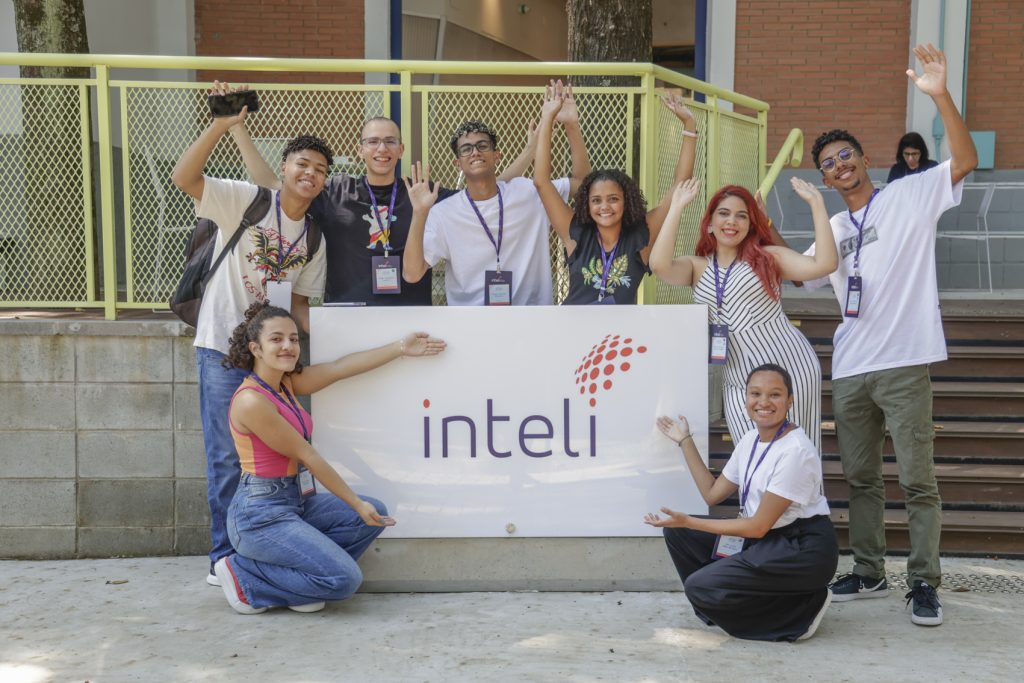
A survey by Equality STEM using data from Inep's 2018 Higher Education Census shows that of the 246 STEM occupations identified by the researchers, only 39 have a female majority - among them, biology and food engineering. Gender inequality is more pronounced in Information Technology and Engineering courses. In the Computer Networks course, female students account for less than 8% of all students and in the Mechanical Engineering course, the figure is 10%.
In other words, the majority of girls are not interested in technology courses, even though they are fully capable. But if careers in the sector offer the best salaries, flexibility and vacancies, why haven't women taken over the seats at tech universities?
A structural change
The study Girls' career aspirations in STEM study helps to understand what might be the drivers of girls' aspirations when they are making choices about which course to follow at university. One of the findings is that contextual factors, family background and general societal beliefs about women in STEM can influence girls' career interests and aspirations.
In other words, we urgently need to provide opportunities from basic education for girls to experience technology in a fun, inspiring and practical way, so that they can see themselves as programmers or engineers. In addition, the media, companies, the government, schools and families need to come together to break down the prevailing stereotypes of a society that is still patriarchal.
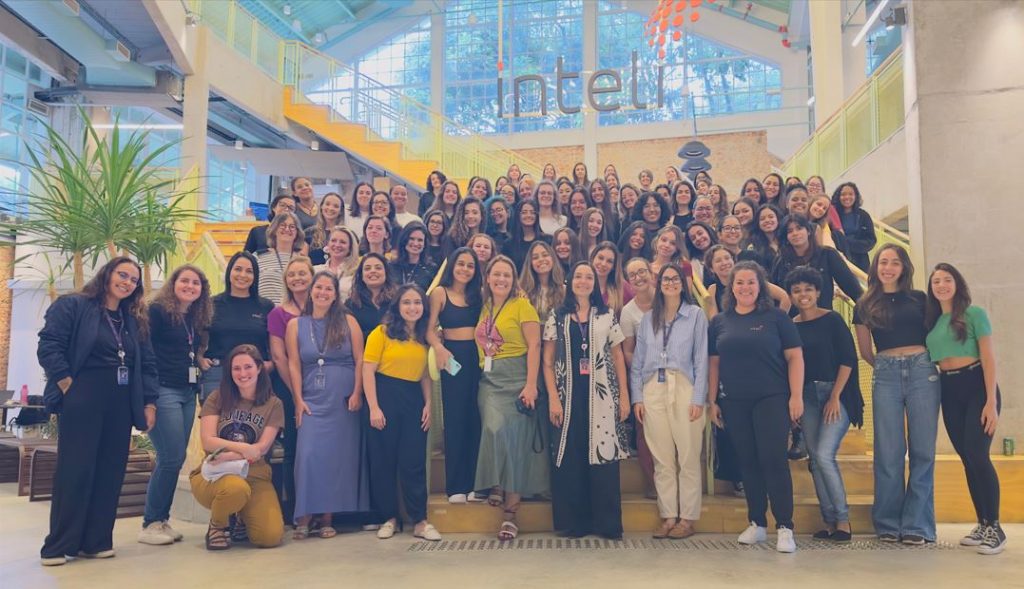
Here at Inteli, we also believe that it is essential to take care of boys so that they can be part of the change alongside girls. Our project-based teaching model provides equal opportunities so that everyone can learn, build and act towards a world of equity.
Here at Inteli, we believe it is essential to create a creative, safe and welcoming space so that more and more girls become interested in technology courses.
Our project-based teaching model provides equal opportunities for everyone to learn, build and act towards a world of equity.
We've prepared this video to show you a little of what our students' daily lives are like. Our daily joy is to see this campus full of girls and young women building an inspiring future for generations to come.
We urgently need to provide opportunities from primary school onwards for girls to experience technology in a fun, inspiring and practical way, so that they can see themselves as programmers or engineers.
Here at Inteli, we also believe that it is essential to look after boys so that they can be part of the change alongside girls.







